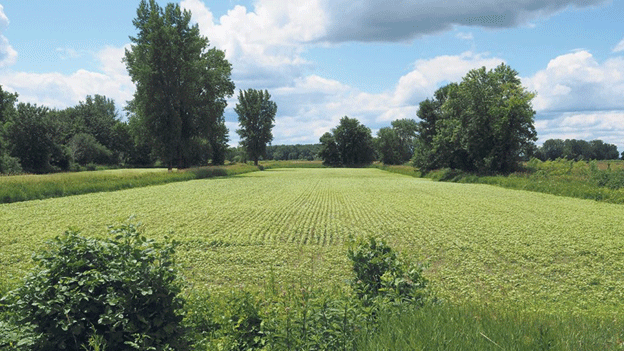A Tradition Reborn
The annual Buckwheat Festival in Louiseville, Mauricie, underscores the importance of buckwheat in the region, particularly due to its resilience against seasonal flooding from Lake Saint-Pierre. Pierre Ricard, whose family has been cultivating buckwheat for six generations, explains that this crop’s rapid growth makes it ideal for the area’s short growing season. Despite its historical significance, the crop faced significant declines in the 20th century, dropping from 92,000 hectares in 1918 to just 4,000 hectares in 1970.
Revival and Expansion
Buckwheat cultivation in Quebec has seen a modest recovery, growing to 5,400 hectares by 2022. This resurgence is partly due to the efforts of Pierre and Alain Ricard, who took over the family business in the early 1990s. Their enterprise, Jardins Ricard, has expanded significantly, acquiring other buckwheat-related businesses and increasing their production from 30 to 250 tonnes annually. They manage 60 to 90 hectares of their own crops, supplemented by purchasing grains from various regions.
The Ricards attribute their success to the crop’s suitability for less fertile, flood-prone lands, which are cheaper and ideal for buckwheat. Additionally, buckwheat’s quick growth reduces the need for fertilizers and herbicides, making it a sustainable choice. This low-input requirement aligns with modern ecological practices and offers a gluten-free alternative, enhancing its appeal.
Challenges and Opportunities
While buckwheat’s profitability varies depending on the land and weather conditions, its potential is evident. The Ricards find profitability in regions with shorter growing seasons where other crops, like corn, are less viable. The future looks promising as Pierre’s sons are already involved in the business, ensuring the continuation of this agricultural tradition.
Recent endorsements, such as those from ecological organizations like Équiterre, suggest a growing recognition of buckwheat’s benefits. These developments could further bolster its role in sustainable agriculture and food security.
The revival of buckwheat in Quebec, driven by the Ricard family’s dedication and the crop’s ecological advantages, highlights its potential as a sustainable and profitable crop. As the demand for gluten-free and environmentally friendly agricultural practices grows, buckwheat stands out as a viable option for farmers and a key player in regional agricultural development.
Error




